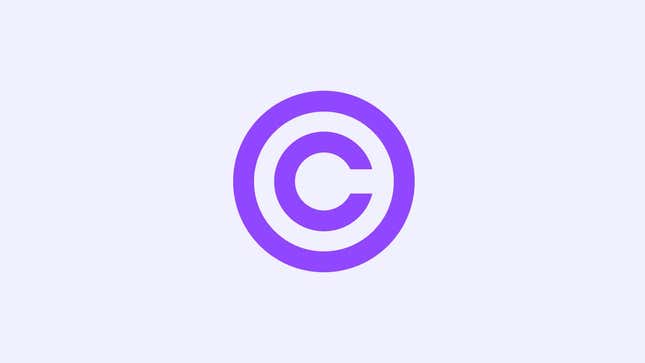
The United States government is, as we all know, extremely functional. It’s so functional, in fact, that it regularly struggles to pass spending bills in order to prevent itself from shutting down. The latest “must-pass” bill, like many of its predecessors, includes controversial measures that wouldn’t be able to pass on their own, negotiated with the high stakes of this particular bill in mind. One of them would turn unauthorized streaming of copyrighted material into a felony.
According to Politico offshoot Protocol, the felony streaming proposal is the work of Republican senator Thom Tillis, who has backed similar proposals previously. It is more or less exactly what it sounds like: A proposal to turn unauthorized commercial streaming of copyrighted material—progressive policy publication The American Prospect specifically points to examples like “an album on YouTube, a video clip on Twitch, or a song in an Instagram story”—into a felony offense with a possible prison sentence. Currently, such violations, no matter how severe, are considered misdemeanors rather than felonies, because the law regards streaming as a public performance. With Twitch currently in the crosshairs of the music industry, such a change would turn up the heat on streamers and Twitch even higher—perhaps to an untenable degree. Other platforms, like YouTube, would almost certainly suffer as well.
“A felony streaming bill would likely be a chill on expression,” Katharine Trendacosta, associate director of policy and activism with the Electronic Frontier Foundation, told The American Prospect. “We already see that it’s hard enough in just civil copyright and the DMCA for people to feel comfortable asserting their rights. The chance of a felony would impact both expression and innovation.”
According to Protocol, House and Senate Judiciary Committees have agreed to package the streaming felony proposal with other controversial provisions that include the CASE act, which would establish a new court-like entity within the U.S. Copyright Office to resolve copyright disputes, and the Trademark Modernization Act, which would give the U.S. Patent and Trademark Office more flexibility to crack down on illegitimate claims from foreign countries.
Alongside the felony streaming proposal, these provisions have drawn ire from civil rights groups, digital rights nonprofits, and companies including the aforementioned Electronic Frontier Foundation, the Internet Archive, the American Library Association, and the Center for Democracy & Technology. Collectively, these groups and others penned a letter to the U.S. Senate last week.
“As creators, innovators, small businesses, online service providers, libraries, educators, and civil society organizations, we are concerned with including controversial copyright or trademark bills in a must-pass piece of legislation,” the organizations wrote (via TorrentFreak). “We respect Congress’s intent to improve our intellectual property system and protect the rights of creators and entrepreneurs. However, certain aspects of this package of bills will have negative impacts on small- and medium-sized businesses, creators, libraries and their patrons, students, teachers, educational institutions, religious institutions, fan communities, internet users, and free expression...We ask that you decline to include this package of bills in the funding bill.”
It’s not difficult to see why Tillis would push a proposal that benefits big companies in the entertainment industry to the detriment of regular people; The American Prospect points out that in the past couple years, Tillis’ campaign committee and leadership received donations totaling out to well over $100,000 from PACs with ties to the Motion Picture Association, Sony Pictures, Universal Music Group, Comcast & NBC Universal, The Internet and Television Association, Salem Media Group, and Warner Music, among many others.
Today, the House passed a stopgap spending bill to keep the lights on until December 18. For now, then, the government will continue to deliberate over these issues and many others, including the much-talked-about coronavirus relief package that has yet to materialize, even with numbers in the U.S. at an all-time high.

